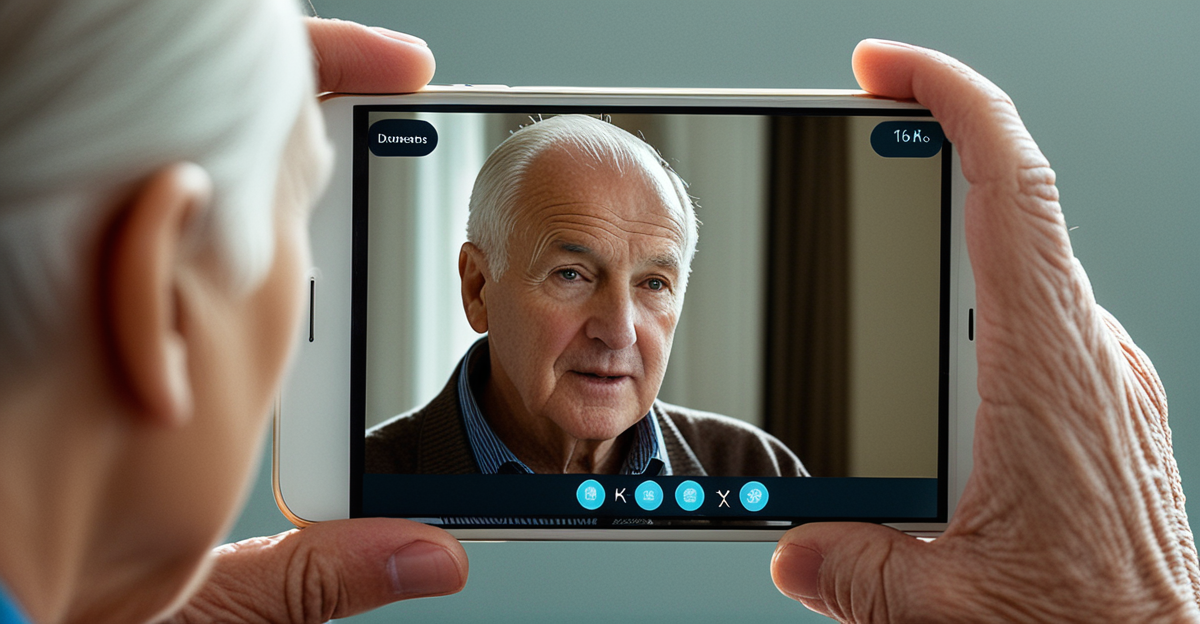Evidence on the Effectiveness of Cognitive Training Apps for Dementia
Recent dementia research has increasingly focused on the effectiveness of cognitive training apps for dementia patients. Multiple scientific studies demonstrate that these apps can contribute to memory retention improvements and help mitigate cognitive decline. For instance, randomized controlled trials have shown that consistent use of cognitive training apps is associated with better performance in memory recall tasks compared to control groups without such interventions.
These findings highlight that cognitive training apps target specific cognitive domains, encouraging repeated mental engagement. The improvements are often measurable in short- to medium-term periods, suggesting the apps help maintain neural plasticity relevant to memory functions.
Also to read : Revamping senior healthcare: how unified care strategies revolutionize chronic condition management
However, it is essential to recognize the limitations and gaps in existing research. Many studies have relatively small samples or short follow-up durations, which restricts understanding of the long-term benefits. In addition, variability in app design and user adherence creates challenges in standardizing results. The research also points to the need for combining cognitive training apps with broader dementia care strategies to maximize effectiveness.
Overall, while cognitive training apps for dementia show promise, further large-scale and longitudinal studies are necessary to firmly establish their sustained impact on memory retention and cognitive health.
In the same genre : Cutting-edge robotic surgery techniques accelerate prostate cancer recovery: a revolutionary leap forward
Mechanisms Behind Cognitive Training Apps
Cognitive training apps for dementia harness neurological mechanisms that target memory and other cognitive functions through structured brain training exercises. These apps stimulate neural pathways by promoting repeated mental engagement, which can help sustain or even improve memory retention in dementia patients.
The core mechanism involves tasks designed to activate specific brain regions linked to cognition. For example, exercises focusing on attention, problem-solving, and memory recall encourage neuroplasticity—the brain’s ability to reorganize and adapt. This targeted stimulation aims to slow down the progression of cognitive decline typical in dementia.
Popular dementia-focused cognitive training apps often include a variety of tasks, such as:
- Memory games that require recalling sequences or matching pairs of images,
- Attention-focused activities that direct the user to identify patterns or focus on specific stimuli,
- Executive function challenges like problem-solving and decision-making tasks.
These diverse types of exercises work together to maintain multiple cognitive domains, providing a holistic approach to brain training.
Understanding how cognitive training apps work is crucial as it explains why regular use may produce measurable improvements. By continuously engaging cognition in a structured manner, the apps help reinforce neural pathways responsible for memory and other mental capacities affected by dementia. This brain training is more than simple entertainment; it represents an evidence-based approach rooted in dementia research addressing the mechanisms of cognitive decline and memory loss.
Benefits and Limitations of Using Cognitive Training Apps
Cognitive training apps for dementia offer several notable benefits, especially in enhancing memory retention and supporting daily cognitive functions. Scientific studies indicate these apps contribute to measurable memory enhancement by engaging users in targeted brain training exercises that reinforce neural connections. Such improvements can help patients maintain greater independence and better quality of life, addressing key challenges in dementia care.
Among the benefits, accessibility and user engagement stand out. Well-designed apps are tailored to accommodate dementia patients’ cognitive and physical limitations, using intuitive interfaces, adaptive difficulty, and auditory or visual cues. This usability promotes consistent participation, which is crucial because sustained training leads to more pronounced cognitive gains. Moreover, the diversity of tasks—ranging from memory games to executive function challenges—ensures broad stimulation across cognitive domains.
Despite these advantages, there are inherent limitations in the practical application of cognitive training apps. A significant challenge is the variable generalization of skills: improvements seen within app exercises do not always translate into everyday tasks, an issue widely noted in dementia research. Additionally, some patients face technology barriers including unfamiliarity with digital devices or sensory difficulties, limiting engagement. Many studies also rely heavily on self-reporting or caregiver observations, introducing potential bias and inconsistencies in assessing effectiveness.
Another limitation concerns the integration within comprehensive dementia care. While cognitive apps provide valuable support, they are most effective when combined with other interventions such as physical exercise, social interaction, and medication management. Overreliance on apps alone may overlook this multidimensional approach, which dementia researchers emphasize for optimal outcomes.
In summary, cognitive training apps present promising benefits for memory enhancement and dementia care but must be chosen and utilized with an understanding of their limitations, especially regarding skill transfer and technological usability. Tailoring app use alongside broader therapeutic strategies can help maximize their positive impact.
Review of Leading Cognitive Training Apps
Choosing the right cognitive training app for dementia is critical to maximize effectiveness in enhancing memory retention and overall cognitive health. A review of dementia apps reveals distinct differences in features, user interface design, and scientific support, which all influence their practical benefits.
Top cognitive training apps typically offer a balance between targeted brain training tasks and user-friendly interfaces adapted for dementia patients. Key features often include adaptive difficulty levels, variety in exercises (memory, attention, executive function), and motivational feedback systems to encourage sustained engagement. These elements address common barriers by promoting consistent use—a crucial factor identified in dementia research for achieving cognitive improvements.
User experiences vary but tend to highlight the importance of simplicity and clarity, especially given the cognitive challenges faced by dementia patients. Apps with intuitive navigation, clear instructions, and sensory aids (visual or auditory cues) enhance accessibility. Caregiver feedback frequently emphasizes that apps which integrate progress tracking and reminders facilitate routine use and better adherence.
Scientific validation remains a central aspect in evaluating cognitive apps. Not all top-rated dementia apps have rigorous clinical backing; however, those with evidence-based approaches show stronger outcomes in memory retention. Comparing user experience with empirical data helps caregivers and professionals make informed choices about which app suits individual needs.
In summary, a detailed review of dementia apps underscores the significance of combining effective brain training exercises with usability tailored to dementia patients. This dual focus enhances engagement, supports cognitive function, and ultimately contributes to better dementia care outcomes.
Expert Opinions and Practical Recommendations
Experts in dementia care, including neurologists and geriatricians, emphasize the importance of selecting cognitive training apps for dementia based on both scientific validity and user suitability. Their expert opinion consistently highlights that not all apps are equally effective, and choosing apps with demonstrated effectiveness in supporting memory retention is crucial. They recommend caregivers prioritize apps that offer structured brain training exercises aligned with dementia research principles.
Regarding dementia care best practices, specialists advise integrating cognitive training apps as a complementary tool rather than a standalone solution. Combining app use with physical activity, social engagement, and medication management creates a multidimensional approach proven to enhance patient outcomes. This holistic strategy addresses the complexity of dementia and leverages the benefits of brain stimulation alongside other therapies to slow cognitive decline.
Practical recommendations for caregivers focus on optimizing usability and adherence. Experts suggest selecting apps with intuitive interfaces tailored for dementia patients’ cognitive capacities, incorporating adaptive difficulty to match user progress. Regular monitoring of app engagement and cognitive changes enables timely adjustments, ensuring sustained benefits in memory retention and daily functioning.
Finally, professionals encourage caregivers and healthcare providers to receive training on app features and implementation to maximize results. Understanding how cognitive training apps for dementia operate empowers caregivers to support patients effectively, fostering consistent use and integrating apps within broader care plans. This expert-guided approach balances technological innovation with compassionate, evidence-based dementia care.











